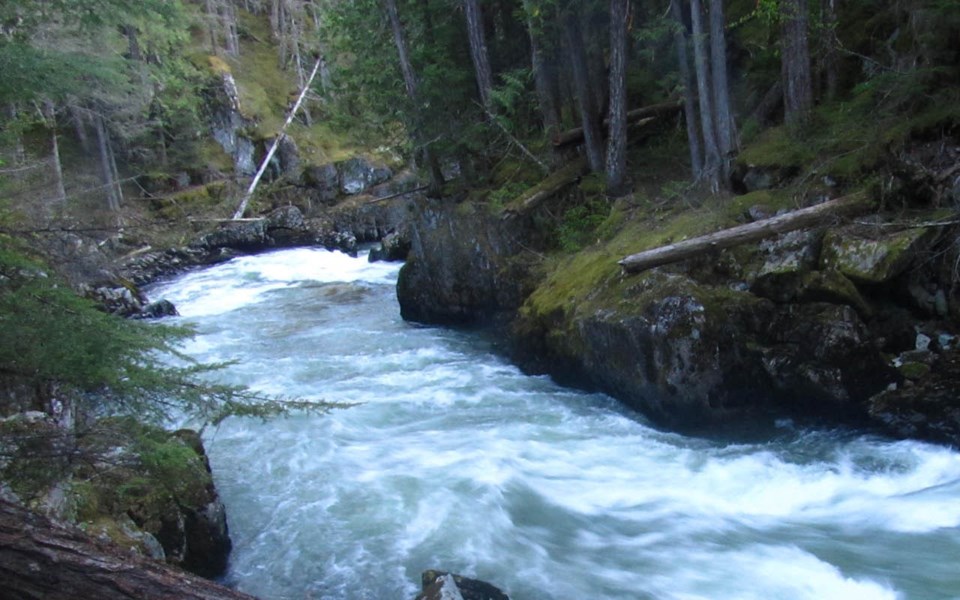A reduction strategy for single-use-items, a zero-waste goal, a capacity discussion, action on emissions, and more enforcement around illegal parking and camping. These are things we can unequivocally point to as benefitting the increasingly impacted environment of Whistler and the rest of the Sea to Sky corridor. And they are things to keep in mind as we go to the polls.
Unlike my learned colleague G.D. Maxwell—whose attention span for such things and assiduity in political analysis, and in tracking policies and performance of particular candidates, is far superior to mine—I won't recommend who to vote for. But I will say this: at this global crisis point, no future action on growth or business or housing or infrastructure or project of any kind can reliably be made outside the context of solid environmental policy. And so it's of utmost importance that the people we elect have some vision on how this will be baked into the process of every conceivable decision made down the road.
Information on where candidates stand (or are willing to be informed) on the environment is out there. Whistler citizens have had a chance to attend several all-candidates events, and plenty has been penned in the Pique over the past few weeks. Another good source is the results of a candidate survey conducted by AWARE (awarewhistler.org/wp-content/uploads/2018/09/Candidate-Survey-Results-2018_Final_lowres.pdf Note: not all candidates participated, and not all who did answered every question, so it isn't comprehensive).
In the answer column for candidates' top three priorities, for instance, current Councillor Jen Ford is the only one whose top priority is climate-change leadership, and her other concern—implicitly environmental to me, and tied to the other—is finding a right-sized tourism economy. It goes on: Arthur De Jong, who believes we've hit buildout in many areas, is bullish on managing growth and (or possibly, by) improving environmental performance; Dave Buzzard mentions solid waste and recycling; Melanie Tardif likewise lists waste and plastic reduction, as well as overtourism and carrying capacity; incumbent Cathy Jewett's priority is the natural environment that both Dawn Titus and Gord Annand pledge to defend and protect ("what brought most of us here originally," according to Titus); Jeff Murl, who mentions "increased adoption of policies and practices to meet environmental sustainability targets," backs this with the seldom-mentioned notion of "reduced expectations of growth for businesses;" and Steve Andrews, always reaching for the stars, wants to promote clean water, increase the number of waste and water transfer/recycling stations, and move RMOW vehicles to renewable energy.
Last week, in "Waste, climate change, and carrying capacity," by Joel Barde (Pique, Oct. 11), AWARE's Claire Ruddy noted how Whistler has "work to do" when it comes to fighting climate change, but that we already have a blueprint—2016's Community Energy and Climate Action Plan (CECAP)—on which to act. After the UN's International Panel on Climate Change issued its most dire warning yet on climate tipping points last week, it's key that several candidates would like to see this move forward. The CECAP's 140 recommendations could help reverse environmental performance indicators that "have consistently been going in the wrong direction" (you can check numbers in that article).
Last week's Pemberton all-candidates meeting was dominated by similar concerns over growth, overtourism and environmental degradation. The bona fide disaster that is Joffre Lakes has created a hyper-cautionary tale, with immediate concerns for similarly attractive areas like Tenquille. Suggestions for fixing some of the problems ranged from shuttling people from Pemby to Joffre Lakes so that the parking (and presumably spending) happened in town, to deploying more park rangers in all backcountry areas, to the village supporting the most obvious strategies available for sustainable tourism. This is already underway, as overtourism prompted current council's unanimous resolution to call for day reservations in high-use parks.
Finally, almost all candidates everywhere list housing and/or affordability as a priority. Good. These are also tenets of environmental stewardship—and not just when it comes to stemming the rising tide of illegal camping. Housing affordability must be included in any discussion on environmental sustainability. Failure to ensure it means increased transportation costs and greenhouse gas emissions as families seek affordable housing further away. Access to housing is vital to community well-being, community well-being vital to community pride, and pride vital to environmental stewardship that includes buy-in on the often difficult prescriptions required to halt this collective skid.
We may have 20 candidates, but we only have one environment.
Leslie Anthony is a science/environment writer and author who holds a doctorate in connecting the dots.




